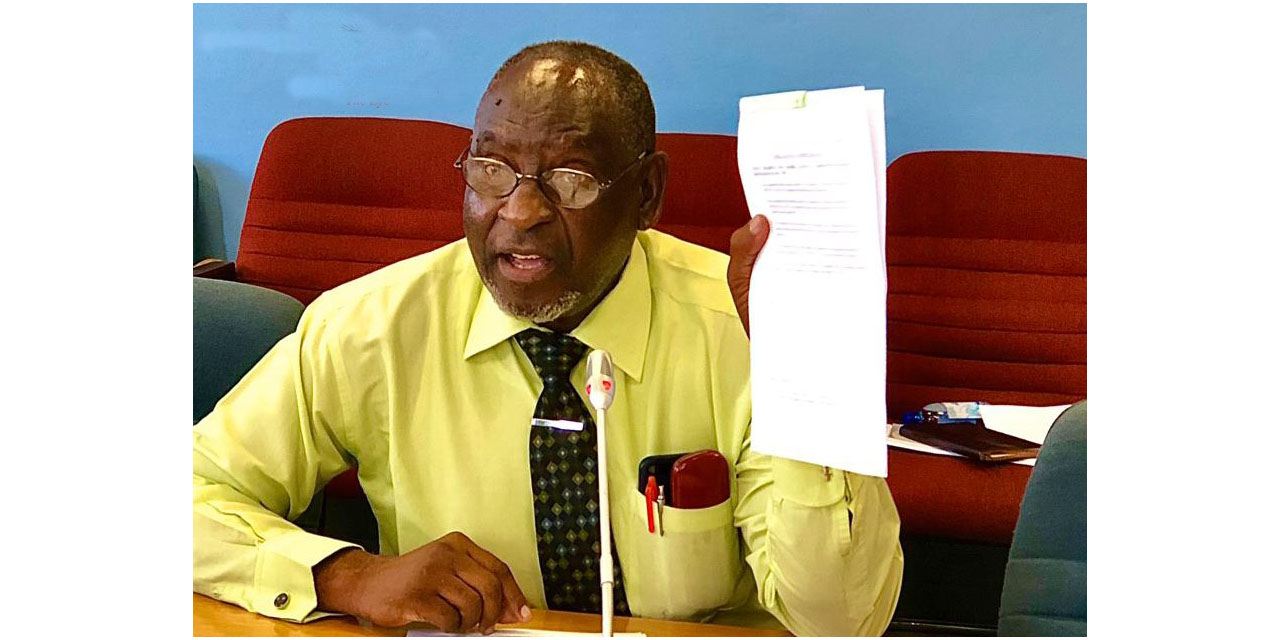Hertta-maria Amutenja
The former Secretary General of the Namibia National Liberation Veterans Association (NNLVA) and Veteran of the liberation struggle, Alex Kamwi has lost his application with the High Court of Namibia to have his veterans grant reinstated by the Veterans Board.
High Court Judge Marlene Tomasi found that Kamwi could not prove the oral agreement he claimed he entered into with Thadeus Elago, the Director for the Directorate of Policy, Heritage and Registration at the Veterans Ministry. Elago has denied having entered into such oral agreement.
Judge Tomasi ruled that Elago’s denial is not so far-fetched.
“The respondents’ version is thus accepted and the applicant has failed to prove that he concluded an oral agreement with the third respondent,” she said.
Kamwi was also ordered to pay the government’s costs of the main application.
Kamwi wanted his grant to be reinstated from February 2019 and a payment of N$117 800 which he says is the total amount that he was not paid between February 2019 and September 2020.
He was claiming that government suspended his grant on 28 February 2019 without allowing him to respond and state why the grant should not be suspended.
Subsequent to the grant suspension, Kamwi wrote a letter to the chairperson of the board requesting the reinstatement of his grant in March 2019.
In response, government said that Kamwi was gainfully employed and earning a regular uninterrupted salary and that the grant was only for veterans who are unemployed or if employed they should be receiving less than N$36 000 per annum.
“The decision to suspend the financial assistance of members of the leadership of the NNLVA was already made on 13 July 2012 as communicated to the then Chairperson of the NNLVA since they were paying themselves allowances, thus, not entitled to financial assistance, hence the veteran’s board discontinued or suspended the financial assistance of the said members for as long as they are receiving an income of more than what is prescribed by section 29(2) read with part 3, section 8(a) of the regulations,” states the documents.
In July 2019 he then filed an appeal with the Veterans Appeal Board wherehe asserted that four months later he and Elagoreached an oral agreement to reinstate his grant
“We both bona fide orally reached an agreement and orally settled that if my grant will be reinstated as of February 2019 I will withdraw my appeal. We should avoid taking each other to court. If there is a problem, we should try to resolve it amicably the way we did,” Kamwi argued.
Tomasi further said even though there was an oral agreement , it would not have been emforced on the the board as Elago was not empowerd to reach such agreements.
“Section 7 of the Veterans Act stipulates that the affairs of the fund shall be managed and controlled by the board . the board collectively, must mangae and control the affairs of the fund. No allegations has been made that the third respondednt was empowered in terms of s 21(2)(c) by the applicant,” she said.
During the case the government applied for the joinder of the Appeal board since they said Kamwi seemed to misinterpret the ruling that the Appeal board supported the oral agreement whereas the Appleal just noted that an oral agreement was entered.
However the Joinder of Appeal board application was dismissed.
The government argued that the oral agreement was baseless and non-existent.
“However, the applicant at his demise stripped himself of the opportunity to be heard and failed to exhaust these statutory local remedies. His attempt to exhaust the local remedy by referring this matter to the Veterans Appeal Board consequently ended in a withdrawal of the appeal. Instead, he is approaching this Honourable Court for relief based on a baseless claim stemming from a non-existent and unenforceable oral agreement. The applicant is culpably remiss in bringing this application prematurely before this Court,” argued the government.
The Veteran’s Board is established as per Section 14 of the Veterans Act, 2008 (Act No. 2 of 2008), whereas the Veterans Appeal Board is established under Section 41 (1) of the same Act.
The Veteran’s Board’s main objective is to ensure the approval of aspiring veterans and the administration of the Veterans Fund, while the main objective of the Appeal Board is hearing appeals emanating from the decisions or an act of the Veterans Board.




